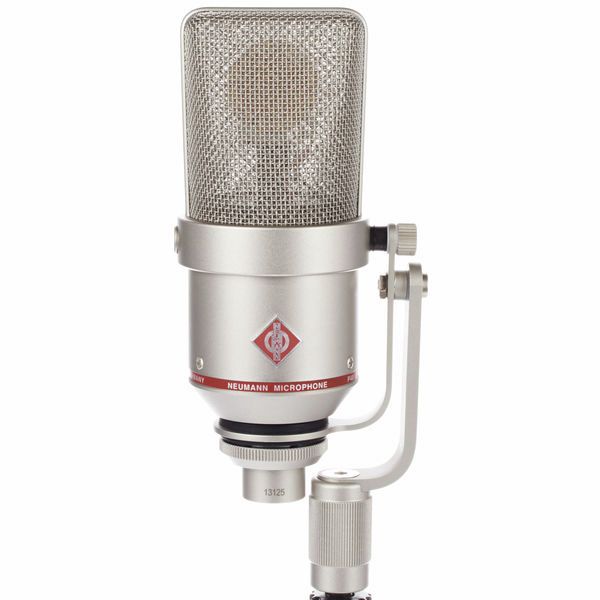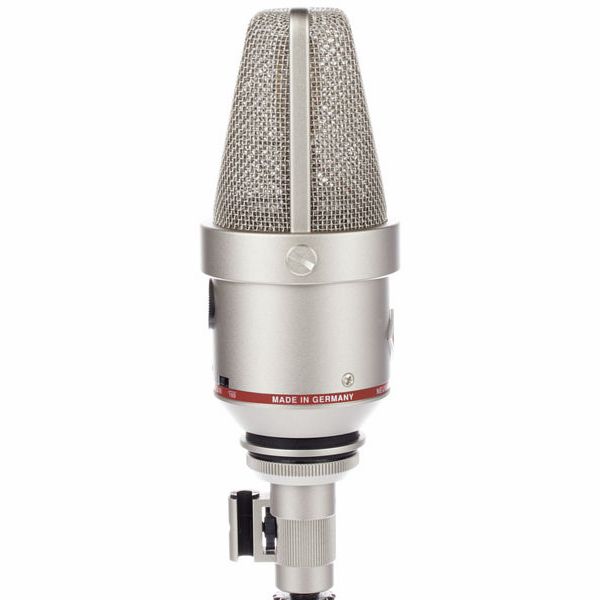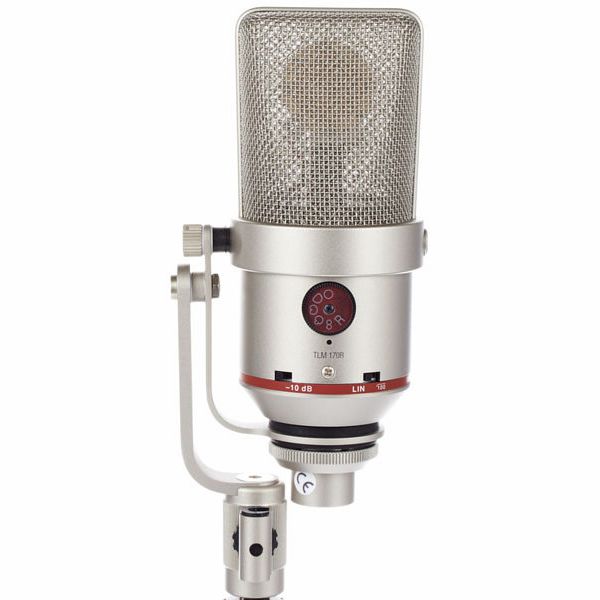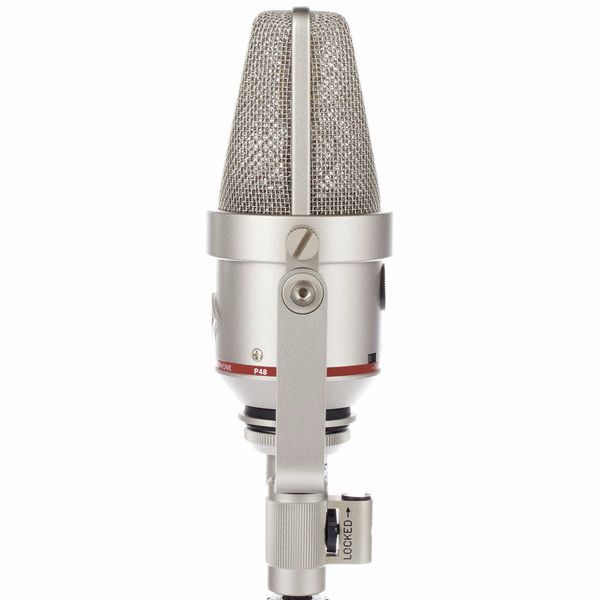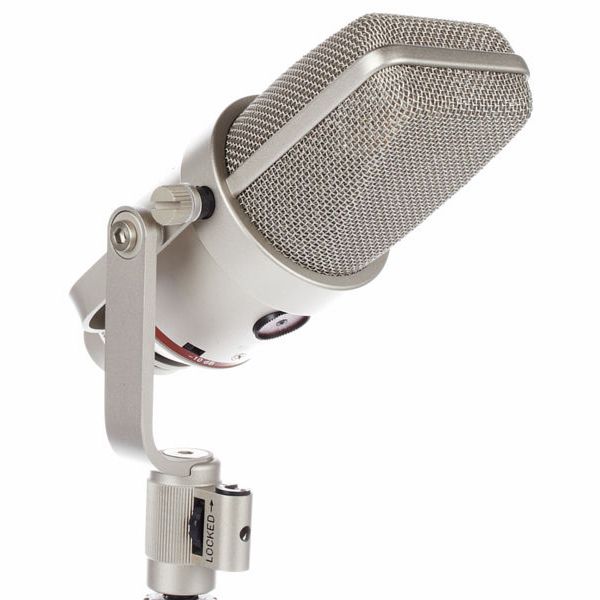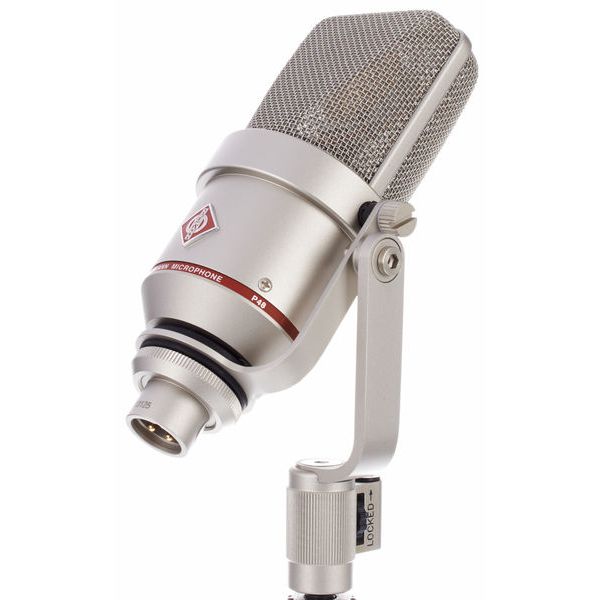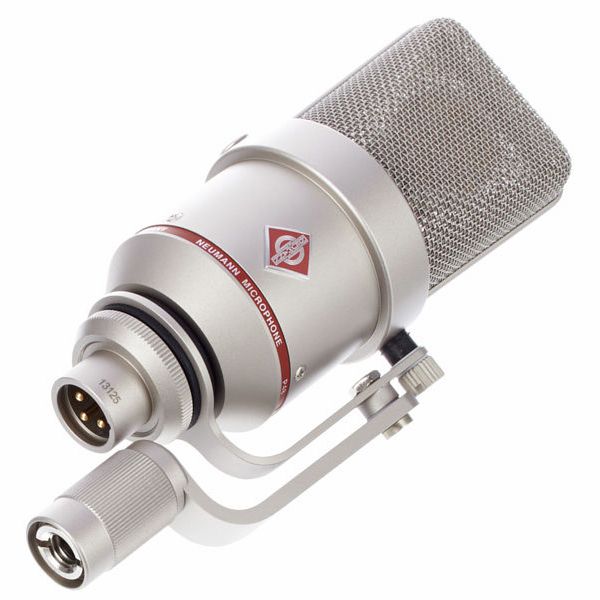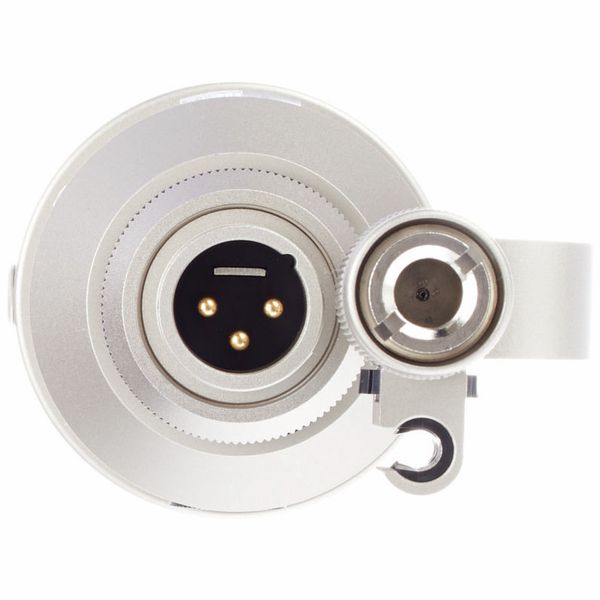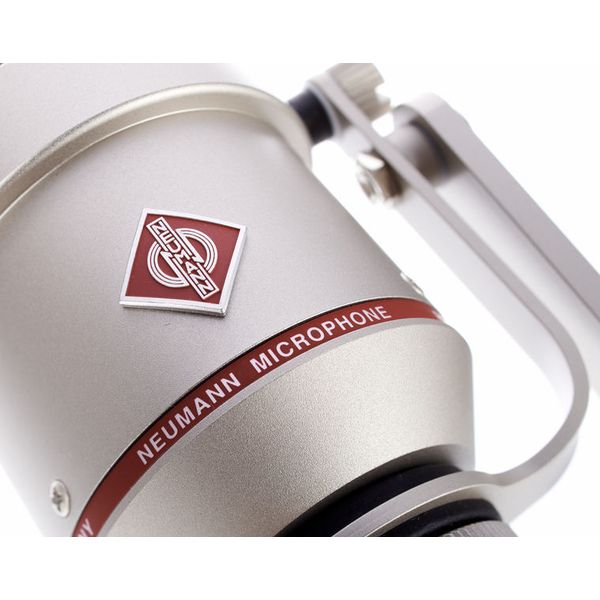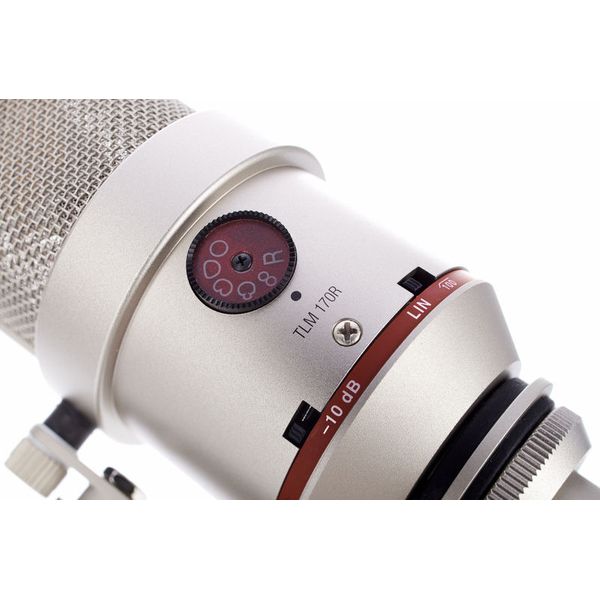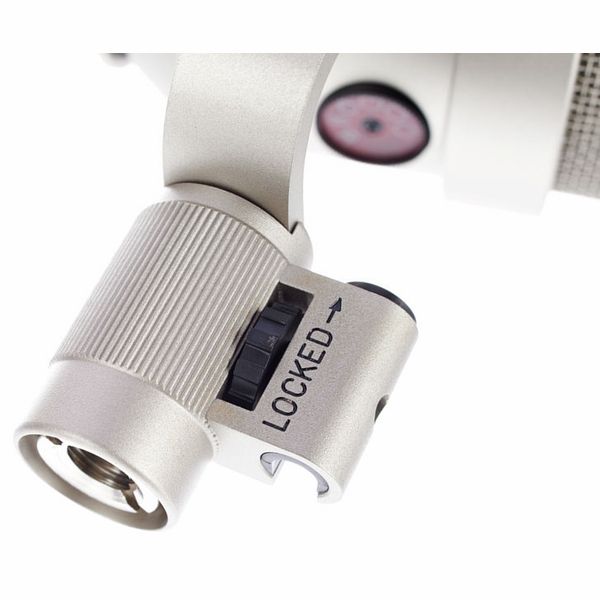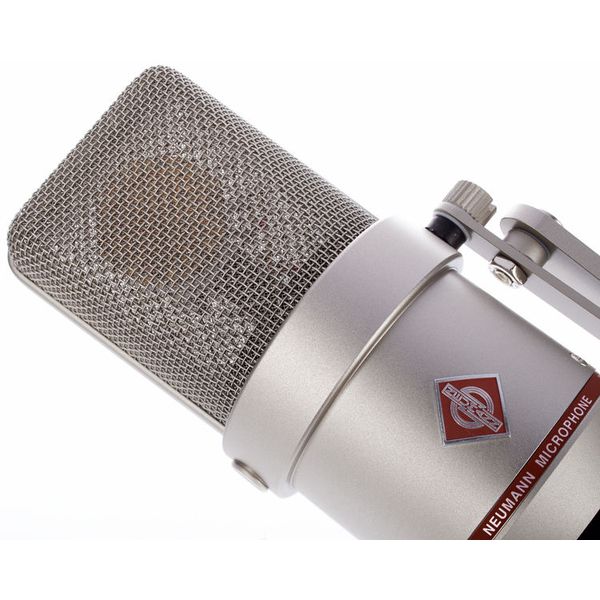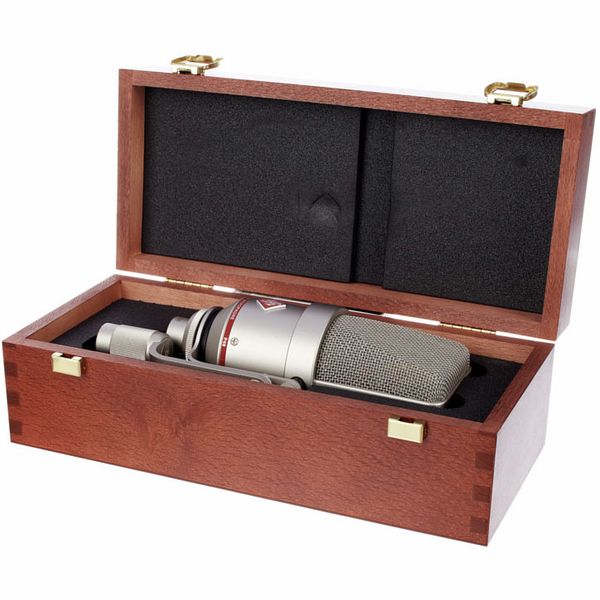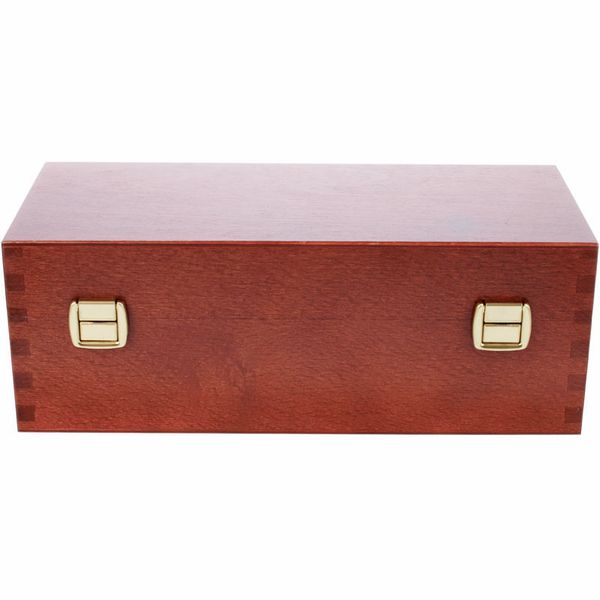Studio Microphone
The TLM 170 R was the first microphone with the now so successful fet-100 technology. It offers balanced, transformerless signal decoupling and highest controllability with extremely low inherent-noise.
Five directional characteristics can be selected with a rotary switch. In the sixth switch, position "R", the directional characteristics can be remotely switched using the N 248 network device without the need for a special cable.
The microphone also has a switchable 10 dB pre-attenuation for very high sound levels and a footfall filter with an operating frequency of 100 Hz.
Area of Application
The condenser microphone TLM 170 R is a switchable large-diaphragm microphone that is characterised by its transmission characteristics and various switching options. It is used in a wide variety of applications in broadcasting, film and television and also in the semi-professional field.
The directional characteristics can be switched both directly on the microphone, as well as by remote control via a dedicated network device.
Acoustic Properties
The double diaphragm capsule in the wire mesh basket of the microphone has particularly even frequency responses for all adjustable directional characteristics. This applies not only, as in many cases, to the sound coming from the front, but also to sound coming laterally within an angular range of more than ±100°.
Therefore, the diffuse field frequency responses up to 10 kHz run parallel to the 0° curves. In practice, this concerns the sound components arriving indirectly via reflections in the recording room to the microphone.
As a result, reverberations around the microphone that is to be recorded is not changed in its tonal character. Since no resonance effects are used to achieve the said microphone characteristics, the impulse response of the microphone is excellent. It is thus able to transmit all balancing processes in music and speech without distortion. The capsule is elastically mounted to protect against structure-borne sound transmission.
Directional Characteristics
In addition to the sphere, cardioid and figure-of-eight directional patterns, the hypercardioid and wide cardioid characteristics are also available. The hypercardioid enables - better than the cardioid - hiding sound sources placed to the right and left of the object to be recorded, while the wide cardioid is best used for transmitting widespread sound sources.
Remote Control
The remote control of the directional characteristics with the help of the network device N 248 is carried out by varying the phantom voltage in the range 48 V ± 3 V (the corresponding standard allows a range of ± 4 V).
In the switch position "R" (= Remote control), the TLM 170 R microphone evaluates the absolute level of the phantom voltage and adjusts itself to the corresponding directional characteristic. As with conventional operation, the normal 3-pin microphone cable is used, cable lengths up to 300 m are permitted.
Electrical Properties
The letters TLM stand for "transformerless microphone". The otherwise commonly used output transformer is replaced in the TLM 170 R by an electronic circuit, which - as a transformer - ensures good damping of unbalance. Therefore, interfering signals that act on the balanced modulation line, as usual suppressed.
Tripod Operation
The TLM 170 R has a side-mounted swivel bracket for mounting on a tripod, which effectively protects the microphone against low-frequency, mechanical vibrations by means of integrated rubber elements. It can be removed as needed or mounted on the other side of the microphone.
To use the IC 4 cable (e.g. to hang the microphone from the ceiling in conjunction with the tilting device MNV 87), the swivel bracket with its support must be removed from the microphone. Then. a thread for screwing the cable in place is freed at the connector of the microphone.
Filter and Pre-attenuation
In order to prevent overloading of the downstream amplifier input, a pre-attenuation of 10 dB can be switched on at the rear.
Another switch allows the reduction of the frequency response below 100 Hz for hiding low-frequency interference.
Operational Safety
The surface of the capsule including the membranes is at ground potential and is therefore insensitive to electrical and atmospheric influences as well as to dirt.
- 5 Directional characteristics: Sphere, cardioid, figure-of-eight, hypercardioid and wide kidney
- Remotely switchable with N 48 R-2
- Colour: Nickel



